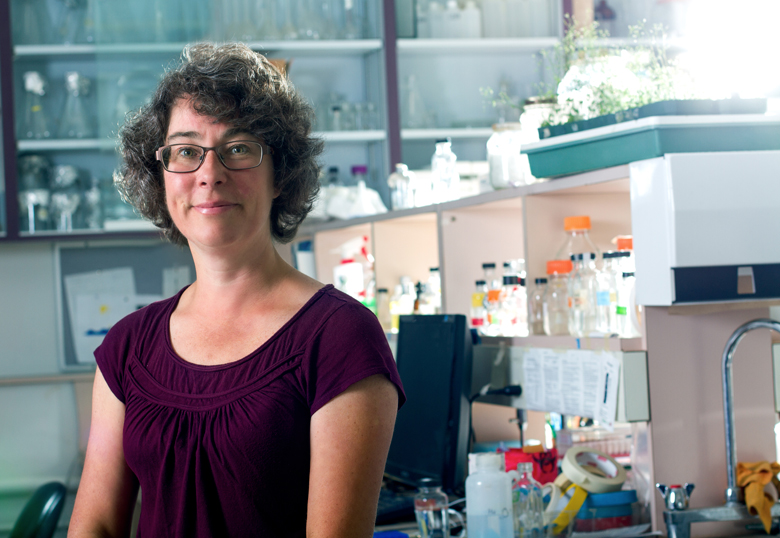Dr. Elizabeth Schultz enjoys a lot of things about being a biology professor at the University of Lethbridge. She loves the process of discovery, the joy of sharing insights with eager students and being part of a close-knit community. And perhaps above all else, Schultz is thrilled whenever she sees the lights go on behind the eyes of a student doing scientific research for the first time.

Like many scientists, Schultz’s professional passion originated in the lab. She knew from the moment she embarked on her first research project as a student that she’d never think of science the same way again.
“Research changed my understanding of science from a set of facts that need to be understood to a creative process that is continually evolving,” she explains. “I realized I could play an important role in discovery and my creativity was a valuable tool. That was a game changing revelation for me.”
Schultz started working at the U of L in 1996 and has helped the institution become one Canada’s most influential research universities, renowned for its commitment to training the next generation of researchers, entrepreneurs and innovators. It’s an accomplishment that wouldn’t be possible without the support of donors, and something Schultz proudly backs by directing her Supporting Our Students (SOS) donations for students involved in research.
“I think it’s essential that science students get involved in research, but unfortunately not every student does,” says Schultz. “Scholarships and awards increase the likelihood that students will consider doing research, and give important recognition to those already involved.”
Although Schultz prefers to direct her SOS donations to one area, she feels strongly about contributing to the fund in any capacity.
“If you struggled financially as a student and now have the money to help someone else who is struggling, of course you should do that. Every contributor should take an approach that feels right personally, but it’s hard to come up with a reason not to contribute at all,” she says. “Everyone who can give should give.”
For Schultz, SOS represents a certain amount of insurance that her students will follow a path leading to professional success and possibly incredible breakthroughs.
“I feel like I’m contributing to a much bigger picture,” says Schultz. “Student awards for research acknowledge the importance of students’ involvement in the scientific community, and gets them committed and engaged in the process of discovery. I want to support that however I can.”
At the end of the day, Schultz feels that her contributions to SOS benefit her as much as they benefit her students.
“Working one-on-one with research students makes our interaction more impactful, which leads to all sorts of positive outcomes. When I contribute to SOS, I make more of those meaningful connections possible.”
**
Join Elizabeth and support our students today.
